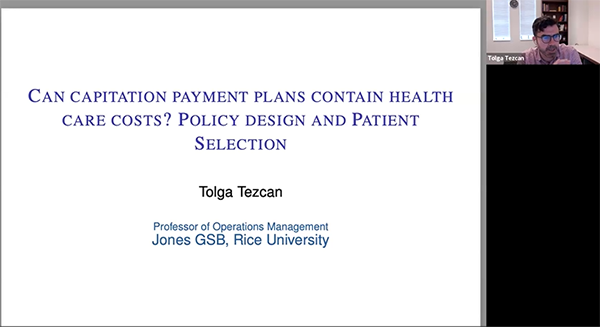Can capitation payment plans contain health care costs? Policy design and Patient Selection
Presenter
May 2, 2023
Event: 35381
Abstract
Large healthcare plans, such as Medicare, are moving to capitation payments with the hope of reducing healthcare costs of their beneficiaries. Under a traditional capitation payment system, a fixed risk-adjusted amount per patient for a fixed time (typically with annual commitment) paid in advance to a private insurance company for the delivery of stipulated health care services by the healthcare plan. Since capitation payment amount is fixed, such plans, in theory, incentivize insurance companies to increase their cost efficiency. However, healthcare costs for Medicare beneficiaries have increased after the implementation of a large capitation payment plan, referred to as Medicare Advantage Plans, by Medicare. Motivated by this, we show that cost reduction incentives may not be effective because insurance companies can select healthy patients through insurance policy design, especially when patients can enroll in other plans, such as the traditional Medicare Plan, that are paid using fee-for service reimbursement. We then show that a capitation payment system that accounts for potential patient selection using the healthcare cost of each patient ex-post can eliminate incentives to select healthy patients.
